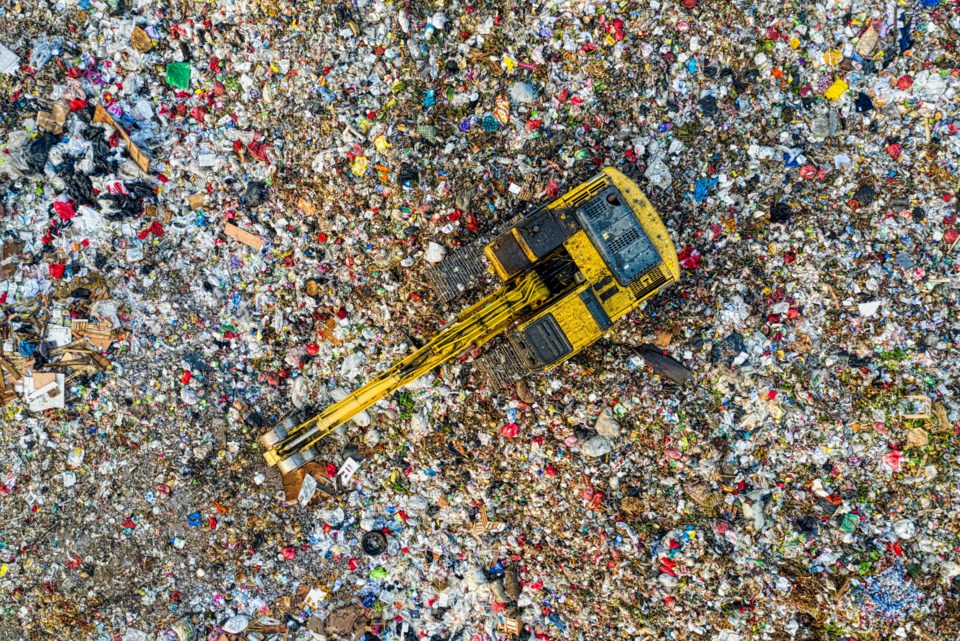With capacity at Simcoe County landfills expected to reach capacity by 2027, the question has been raised about where local waste will go once that happens — especially as there are no plans to create any new landfills in the region.
Steffen Walma, a Tiny Township councillor, posed that question after county council received the annual monitoring reports summary for landfill sites at Tuesday's meeting.
“I have been doing my best to follow along with waste management discussions," he said. "I know in the past that it’s been a very colourful discussion and there have been some very creative solutions by staff to maximize our room in landfills.
"I am curious, as I think the last thing I read said we (have) about two years remaining in our sites … and the last direction from council (unless) that’s changed (was) no landfill in the County of Simcoe. My question is long-term, what is the next step when those two years end?” asked Walma.
Rob Elliott, the county’s general manager of engineering, planning and environment, explained that staff will bring forward a series of strategies to council to address the situation.
“We are not pursuing additional landfill sites within the county right now. Our goal would be to increase diversion rates specifically in the organics program," Elliott said. "We know that is the greatest opportunity right now to free up how much goes to landfill. Our focus, in the meantime, would be producing an environment that allows for ease of our organic diversion and pursuing our Environmental Resource Recovery Centre (ERRC)."
Currently, the county hauls organics to a processing facility in Elmira on a daily basis. However, with the construction of the ERRC, all organics would be processed within the county and result in reduced greenhouse gas emissions, lower costs associated with hauling, more predictability in processing costs, the creation of more than 100 direct and indirect local jobs, as well as potential revenues from the sale of bio-gas and/or finished products.
Expected to be built at 2976 Horseshoe Valley Rd. W., in Springwater Township, the facility will house an organics processing facility (OPF), a materials management facility for the transfer of garbage, and a public education centre.
The county is also working with the province to advocate for a provincial role for additional landfill capacity, added Elliott
“Over the last couple of years, they have made the legislative environment really difficult for any individual municipality to embark on a new landfill program," he said. "We think that they need to come to the table and help solve that problem."
Rob McCullough, director of solid waste management, pointed out the county currently has three main landfills: Collingwood, which is expected to be full toward the end of this year, the Nottawasaga site and the Oro-Medonte site, which is expected to reach capacity by 2027.
“That has all been built into our long-range budgets, but it’s not two years that we are out of capacity ERRC. It’s 2027 where we feel we will be filled,” he said.
Walma added that no matter what the county does or how much it diverts from landfill, eventually it will be out of space.
“We have to do those things and we have to increase our green bin captures, recycling and we have to get the ERRC done, but eventually we still run out of room — and essentially we have a ‘no landfills in Tiny Township thing,'" he said.
"When do we start talking about those solutions? Are we going to be building a gasification plant or will we just ship our garbage to Michigan? When does that conversation start?” Walma asked.
Elliott said the county's plans are all going to be brought forward individually for council’s consideration and direction to staff.
“As we embark on new strategies and different areas, there would be lots of opportunities for council to weigh in and offer insights,” he said.
